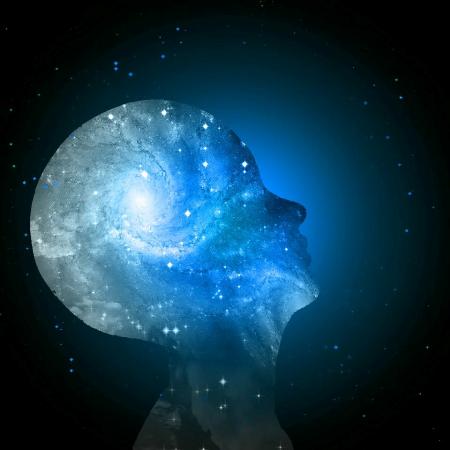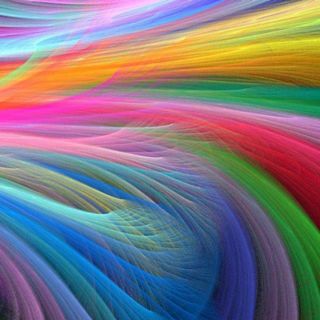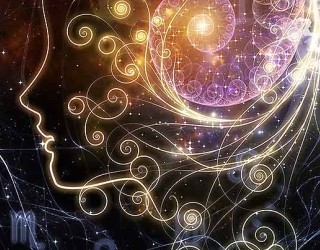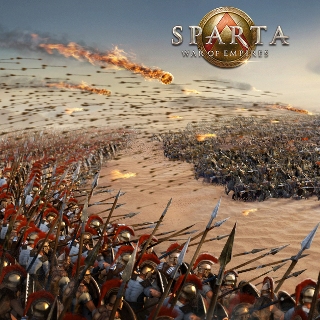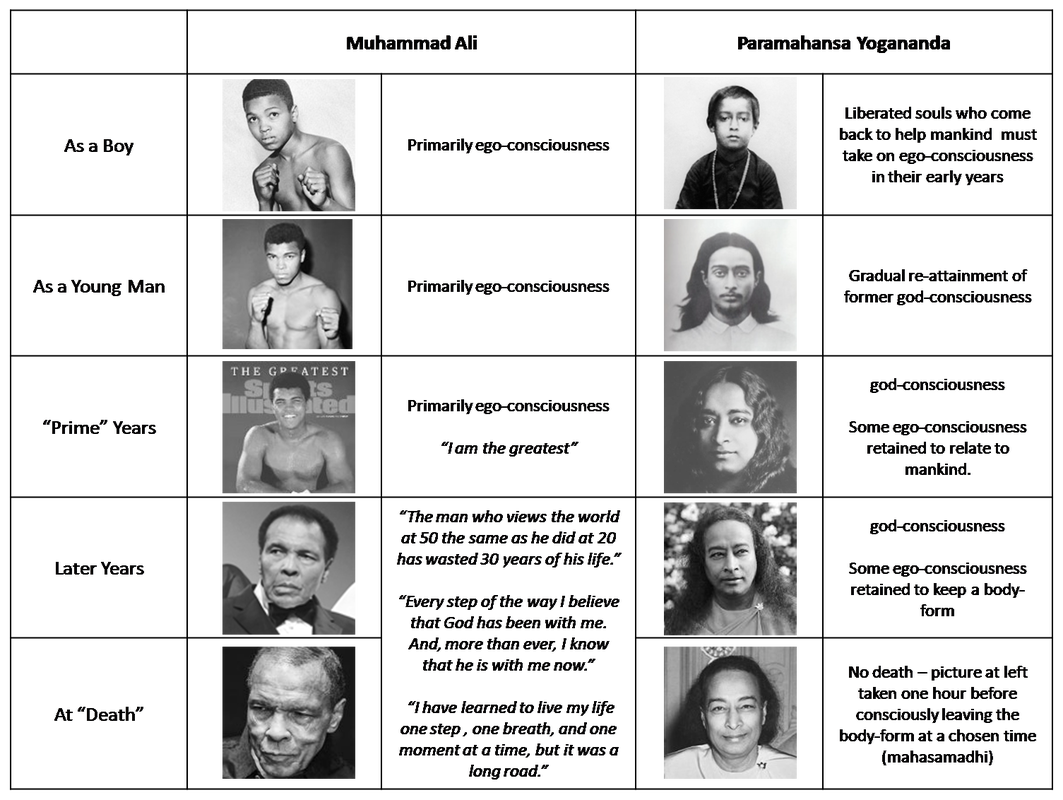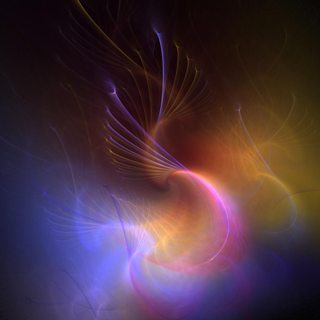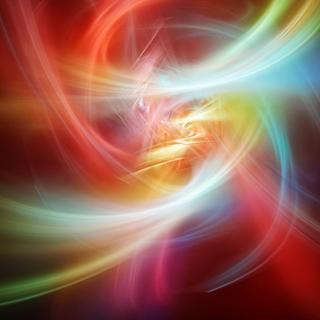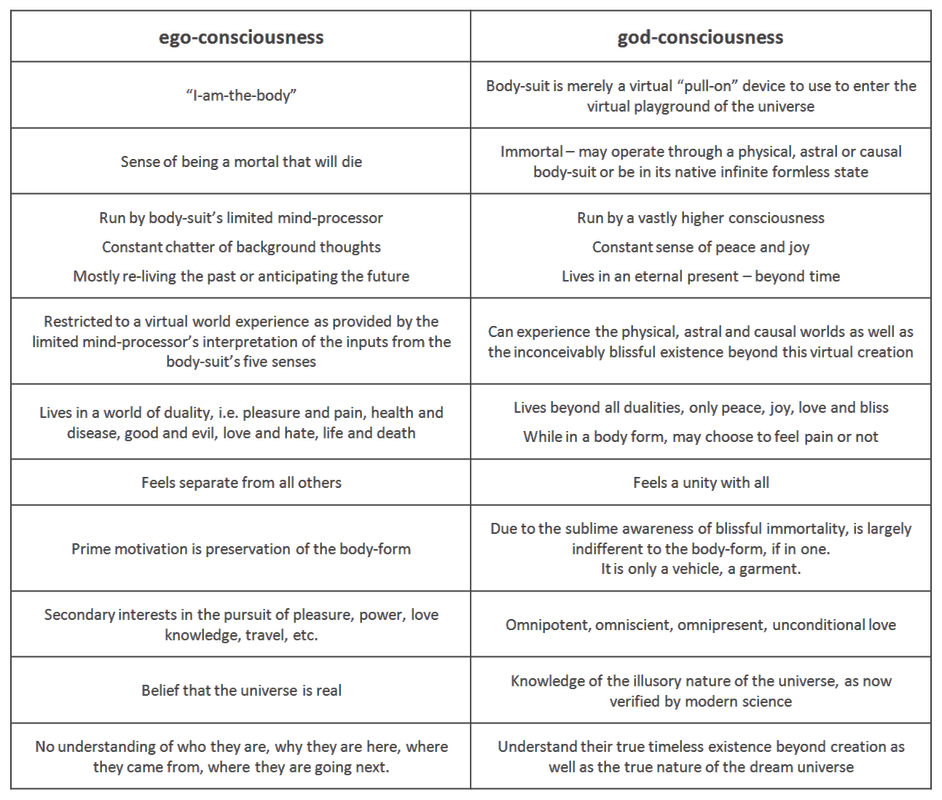Ego-consciousness and God-consciousness
Quotations on The Nature of ego-consciousness Quotations on The ego-conscious Mind-Processor Quotations on The Nature of god-consciousness Quotations on Comparison of ego-consciousness and god-consciousness |
“When the soul returns to God, the ego is voluntarily relinquished.” ~ Edgar Cayce As mentioned many times herein, humans are endowed with two forms of awareness – god-consciousness and ego-consciousness. To many, these are strange terms. What is consciousness? People have written volumes on this topic. From various sources, we get terms such as “awareness of one's own existence, sensations, thoughts, surroundings, etc” or “the quality or state of being aware” or “the state of being awake, thinking, and knowing what is happening around you” or “a sense of one's personal or collective identity, including the attitudes, beliefs, and sensitivities held by or considered characteristic of an individual or group.” Summarizing the above, perhaps we can say consciousness is “a state of awareness of one’s self/identity and one’s surroundings.” In simple terms, ego-consciousness is the state of identifying with one’s body (“I-am-the-body) and one’s immediate surroundings while god-consciousness is the state of awareness of one’s identity as a god, or as Spirit both within and beyond the universe. To keep an already difficult topic as simple as possible, we will only consider ego-consciousness and god-consciousness in the context of one’s normal waking consciousness (i.e. not sleep or subconsciousness or other forms of consciousness). This does not limit the discussion in any way. We start out our existence as souls, created by Spirit to be unique, individualized extensions of Itself. As such, the soul is essentially the same as Spirit. This is god-consciousness, an immortal, blissful state of existence. The terms soul-consciousness, god-consciousness and God-consciousness can all be used interchangeably and are essentially synonymous. Using a non-capitalized version for god or god-consciousness is merely a device to “soften” the truth that the true nature of man is God. Most humans, under the control of their ego-conscious minds, would have difficulty seeing themselves as God. Perhaps “god” is easier to accept. Using “god” also helps signify that we are referring to man within creation. For example, Jesus of Nazareth is quoted as saying, “Is it not written in your law, I said, Ye are gods.” As well, Paramahansa Yogananda has written, “The only effort we have to make is to forget our mortal consciousness; as soon as that is done, we know we are gods” and elsewhere, “You are all gods, if you only knew it.” Once man returns to his native home beyond creation, the capitalized version “God” may be easier to appreciate. However, capitalized or not capitalized, the essence is the same. Some mystics refer to this state of god-consciousness as the Self, or Self-realization, or Being or Nirvana. The soul outside of creation is boundless, immortal bliss. It feels a direct connection and oneness not only to Spirit but also to all of the other individualized extensions of Spirit; an all-encompassing reach. It is essentially Spirit Itself. As such, it is not surprising that qualities such as universal love, joy, compassion, empathy, generosity, fearlessness, peace, happiness, forgiveness, wisdom, etc. are indicative of some level of god-consciousness. In order to enter the virtual reality world of the universe, one must put on a VR body-suit, much like a player of one of today’s VR games must put on a VR headset or other device in order to enter and play within the simulated virtual environment of the game. Our playing in the universe is just the same. As well, in order to enjoy the game better, we have to pretend to be the character or person we are playing, i.e. part of our consciousness needs to pretend to be the game player and part of our consciousness needs to remember our real identity outside of the game. For us, our identity outside the game is our god-consciousness, the individualized extensions of Spirit that is our true self. Within the game, our pretend selves are these body-suits that we occupy and the associated mind-processors that come with them. In order to pretend to be these game players, we take on the spell of cosmic hypnosis, i.e. maya and avidya. Maya makes us think this game environment of the world is real and avidya makes us think that the virtual body-suits we occupy are real and who we are. This is ego-consciousness. Spirit’s cosmic virtual reality game is best played when there is a balanced blend of god-consciousness and ego-consciousness, so that we can pretend to be the body-forms while still retaining awareness of our true god-conscious selves. We get ourselves into trouble when we become so engrossed in this realistic simulation that we begin to believe that the simulation of the universe is real and that our pretend body-forms are our real identity. Our true god-consciousness is forgotten and our ego-consciousness becomes our reality. We become trapped inside the game and forget how to get out. Like most VR games, the virtual game of the universe involves a lot of action, good guys and bad guys, death and destruction, wars, etc. That’s fine when you know the game is not real, just a simulation. Nobody is killed – it’s all just forms of simulated light energy. When you lose that understanding, the game becomes devastatingly real. And such is the current predicament of most of the human “players” on earth today. Paramahansa Yogananda describes this predicament in a conversation he had with Spirit, as quoted below. Note that Yogananda uses the analogy of a movie picture show rather than a virtual reality game (which had not yet been invented). One can easily substitute a virtual reality game into this quote instead. Both analogies are quite effective. “I remember one day I was in the movies; movies have one fascination, because I see the whole world as movies. I was in the booth and I saw the operator was reading a novel and I saw this automatic machine was going on and the beam was causing on the screen a terrible horror picture. And I said, “Lord, how is it. I have the whole show of the universe in front of me. You are this operator who is thinking of new plays and Your Nature is throwing this beam in the sky. And I see the hero and the villain are nothing but pictures. Nobody is killed.” Many were being killed and shot in this picture but I saw from the booth it was the light that had created the villain and the light had created the hero. And the Voice said, “….. there is no villain, no hero, they are both pictures of my beam ..… realize that all this world which you see, of terrible wars and troubles, is nothing but a picture show, cosmic motion picture show in the sky” ….. Until you find that out, this world is a terrible show. I said to God, as He was talking to me, “But Lord, look at the audience. They are howling and screeching downstairs at this horror show. I see it is nothing but pictures and light because I see the invisible beam. There are no murders in the beam, no heroes, no villains in the beam. But Lord, what about the audience – they don’t know it.” Then the Voice said, “Tell them all to … realize that this show is given to entertain them, not to get mixed up with it.” Ego-consciousness is associated with the mortal body-suit and the body-suit’s mind processor. This mind-processor is much like a computer program associated with a VR headset or game. It is designed to take the data from the body-suit’s five senses, process the data and then produce and project an immersive holographic movie of a “mini-universe” which contains the condensed light forms of the body-suit and all of the objects within the range of the five senses. This is the world of the ego-conscious mind. One cannot occupy a mortal body-suit without taking on some ego-consciousness. The thoughts that our minds produce are all a function of the ego. In fact, the following words can be used interchangeably – ego-consciousness, body (body-suit), mind (mind-processor), thoughts, and mortality. If you identify with any one of these words, you will identify with all the others. For example, if you occupy a body (or body-suit), you will always have a mind (mind-processor), a myriad of thoughts, a sense of mortality, and ego-consciousness as well. The terms used in parentheses are to help remind us that the things we take as real are not real, i.e. the body is better referred to as a body-suit to remind us that it is a vehicle we occupy in order to enter the VR cosmic playground. It is not our real self. Similarly, the mind that we usually associate with ourselves is really a mind-processor that comes with the body-suit to perform the functions mentioned above. It is merely a tool. While the mind-processor has some intelligence and reasoning capabilities, it is still quite limited. It is not capable of fathoming the highest realities beyond time and space. Our real awareness is the infinite, timeless god-consciousness, but when we forget that, while in ego-consciousness, the mind-processor becomes our conscious self. As mentioned, thoughts are produced by this mind-processor. In fact, the mind-processor produces a constant background chatter of thoughts. To see this, just sit still, close your eyes and choose not to have any thoughts for the next 5 minutes. Be still. The mind-processor does not want to be still. The thoughts are almost always either replaying something from the past or anticipating something in the future. The mind-processor likes to live in the past or the future; it only functions in the present when undertaking a highly intricate task. The illusion of time and space is built into the VR game of the cosmic playground. In order to play in this playground, the vehicle of the body-suit and ego-consciousness must assume time and space to be real. It is part of the game. This is so ingrained in us that to suggest that time and space are not real is very hard to accept. Modern science is helping in this regard, but it is still a major stretch. We will address this topic in more detail in a future entry to the What’s New section of the website, under the title of The Enigma of Time and Space. As well, ego-consciousness and cosmic hypnosis (or maya and avidya) go hand in hand. Without the spell of maya, ego-consciousness cannot exist. Ego-consciousness without any god-consciousness identifies totally with one’s body-form and its needs. It feels no empathy to any others. It considers itself a separate being with no connection to anyone else. It will do whatever it feels necessary to ensure the mortal body-suit is looked after in terms of safety, food and shelter. The most negative human qualities are associated with pure ego-consciousness, i.e. anger, hate, selfishness, arrogance, cruelty, greed, jealousy, unkindness, violence, etc. When ego-consciousness exists without much overlay of higher consciousness, the primary concerns of safety, food, and shelter of one’s body-form and the secondary interests of power and control over one’s life can become distorted and perversely implemented. In the last 100 years or so, in the pursuit of one’s own and direct communal interests, well over 200,000,000 humans have died as a result of actions taken by other humans, i.e. wars, massacres, genocides, famines, murders, etc. That’s an average of over 5400 deaths every day of man killing man over the last 100 years. There have been over 150 wars or conflicts during that period. The last 50 years has seen the growth of an international “power elite” group that quietly controls world financial systems, major multi-national corporations and governments, resulting in significant corruption. The world’s wealth is dominated by a small percent of people in spite of massive worldwide poverty. In 2007, in the United States, the top 1% of the people controlled 35% of the country’s wealth while the total wealth shared amongst the bottom 80% of the people was only 15%. In recent years, that wealth distribution has gotten even worse. “If the history of humanity were the clinical case history of a single human being, the diagnosis would have to be: chronic paranoid delusions, a pathological propensity to commit murder and acts of extreme violence and cruelty against his perceived “enemies” - his own unconsciousness projected outward. Criminally insane, with a few brief lucid intervals.” And again, “As long as you are run by the egoic mind, you are part of the collective insanity. Perhaps you haven’t looked very deeply into the human condition in its state of dominance by the egoic mind. Open your eyes and see the fear, the despair, the greed, and the violence that are all-pervasive. See the heinous cruelty and suffering on an unimaginable scale that humans have inflicted and continue to inflict on each other as well as on other life forms on the planet. You don’t need to condemn. Just observe.” ~ Eckhart Tolle “It is a great marvel to me that, despite the fact that we are all the embodiments of the Divine, of God Himself, the most predominant trait of all human beings is that they so hatefully despise each other, and constantly criticize and seek to harm one another.” ~ Swami Abhayananda The good news is that today, most ego-conscious humans have re-acquired god-conscious qualities at least to an extent that most of the time we can keep our more negative ego-conscious traits in check. As one moves through the school of hard knocks and karma and suffering, one begins to acquire traits that are usually associated with beings with higher consciousness, e.g. a connectedness and concern for fellow human travelers, compassion, empathy, sharing, love, etc. Without the acquisition of these higher traits, the players in this game of creation would likely have eliminated each other and destroyed the game’s playground as well. In comparing god-consciousness and ego-consciousness, one can ask, who am I? If the answer is, “I am a mortal being, a body, separate from all others, living in a world that I do know much about, unaware of where I came from or where I’m going”, then one is dominated by ego-consciousness. If the answer is, “I am an immortal, a god, playing for a time in the fantasy-land of the cosmos and returning to my infinite home beyond creation after I am done”, then one has regained god-consciousness. The latter is the answer that a mystic would give. As an aside, it is interesting how the world deals with mystics who have actually said, “I am God”. Historically, in the Western world, those who have used that phrase have been prosecuted and killed. In the Eastern world, they are revered. We saw earlier that our Adventures in Wonderland consist of several stages. At each stage, one of these two primary states of consciousness dominates, i.e. either god-consciousness or ego-consciousness, as summarized below; The soul is created - pure god-consciousness The “body-suit” is occupied - ego-consciousness is now acquired The gods play in Fantasyland - blend of god/ego-consciousness The Fall - almost entirely ego-consciousness School of hard knocks - primarily ego-consciousness Journey of Awakening - gradual recovery of god-consciousness The Causal World - primarily god-consciousness Enlightenment - pure god-consciousness The Causal World will be addressed as a new topic in the What’s New section of the website, under the title of Astral and Causal Worlds. Most humans today are in a state of dominant ego-consciousness with some recovered god-consciousness. A small minority of humans today are almost completely run by the false ego-conscious mind-processors. They can only relate to themselves and are consumed by a drive for power and the survival of their individual body-suit at all costs. They do much damage. A small minority of humans today have almost fully recovered their god-consciousness. These are the mystics and others whose vibrations do much good to the world around them. Over the ages, many humans have attained enlightenment and are no longer within the VR game of the universe, having fully regained their original god-conscious state. These liberated ones are back in their original infinite, immortal bliss-conscious state beyond creation. There are also a few rare souls who have won their release from the cosmic game but who voluntarily come back inside the game and occupy a body-form in order to help others. These are the great prophets or avatars that have graced the planet throughout the ages, including today. Some are well-known and some do their work mostly in the background, largely unknown except to a few. The mystics have had much to say about god-consciousness and ego-consciousness. The Bhagavad Gita, perhaps India’s most cherished spiritual classic, tells the story of the battle of Kurukshetra between two great forces, the Panavas and the Kauravas, a battle that historically occurred many thousands of years ago. This battle is also an allegorical description of the battle between the two powerful forces of god-consciousness (the Pandavas) and ego-consciousness (the Kauravas) that takes place within the minds of each one of us. The main players in the battle represent a characteristic of god-consciousness or ego-consciousness. The Bhagavad Gita itself is a dialogue between Arjuna, one of the key Pandava warriors, and Krishna, an avatar. Krishna is, of course, on the side of god-consciousness. He is Arjuna’s charioteer during the battle. The dialogue between Arjuna and Krishna takes place prior to the main battle, as Arjuna looks out over the two armies. At first, Arjuna does not want to fight (i.e. give up his familiar ego-centric live). Krishna informs Arjuna that he must fight. He gives Arjuna an experience in cosmic consciousness, or god-consciousness, i.e. the vision of visions. Arjuna then accepts that he has to fight. The Pandava army is eventually victorious. The battle of Kurukshetra is an internal battle that goes on every day within every human being, a battle that ultimately will be won by the soul forces, but not without epic resistance from the forces of the ego, with much pain and suffering. As mentioned, ego-consciousness and god-consciousness can be a difficult topic to grasp. But such an understanding is fundamental to knowing ourselves and the choice of world we live in. Perhaps the best way to gain understanding comes from the direct words of the mystics. Copious quotations are provided herein for that purpose, including many each by Swami Abhayananda and Eckhart Tolle who provide particular insight on this topic. The quotations are organized into five areas, as follows;
The Ultimate Unreality of ego-consciousness “It sometimes happens that a man, when bathing in the river, steps upon a wet rope and imagines that it is a snake. Terror will overcome him, and he will shake with fear, anticipating in his mind all the agonies caused by the serpent’s venomous bite. What a relief does this man experience when he sees that the rope is no snake. The cause of his fear lies in his error, his ignorance, his illusion. If the true nature of the rope is recognized, his tranquility of mind will come back to him; he will feel relieved; he will be joyful and happy. This is the state of mind of one who has recognized that there is no ego, and that the cause of all his troubles, cares, and vanities is a mirage, a shadow, a dream.” ~ Buddha “We live in confident certainty of our (illusory) individuality, regarding as "self" that kaleidoscope of transient mental impressions which is presented to our conscious awareness. But, say the mystics, this superficial play of thoughts, memories, sense impressions, upon the screen of awareness is but a mirage.” ~ Swami Abhayananda “Because you wrongly identify yourself with the body, you see the world outside you and its suffering becomes apparent to you; but the world and its sufferings are not real.” ~ Ramana Maharshi “The Real is the eternal ‘I’ that periodically projects this fantasy on its own screen. … The perfect satisfaction you crave can only come by ‘waking up’ from the false illusory ‘I’ to know your true eternal Self.” ~ Swami Abhayananda “Thinking that you are the physical form that you’re occupying, with its psychological make-up, and the stories that it tells itself about who it is and what has happened to it during its lifetime, is an illusion.” ~ Eckhart Tolle “The self you think you are is only a mirage; The Self you’ve always been is that eternal One.” ~ Swami Abhayananda “That illusory separate identity, or individual ego, common to all embodied souls, is an extremely subtle and deceptive mirage. It masks the nondual reality … separating us from the awareness of our true Self, our Godhood.” ~ Swami Abhayananda “Plotinus acknowledges, as do the Upanishads, that the soul is capable of remaining blind to its Divine nature, its innate capacity, attributing an illusory ‘I’ to its transient embodiment, and thereby living a superficial life concerned only with sensual and emotional pleasures, promoting its own aggrandizement and individual welfare. But eventually it must revise its outlook; for, understand, the soul is nothing else but the Divine - as a ray of sunlight is nothing but sun. Its only real identity is Divine Consciousness. Its association with body establishes an ego-sense, the illusion of an ‘I’, a personal identity, associated with one particular physical entity in a spatio-temporal universe. But there was never an actual personal identity; it was always the Divine Consciousness.” ~ Swami Abhayananda “You identify with the mental activity and the transient worldly forms, and, forgetting your real Identity, you become swept away in the agitated currents of the mind. It is just this false identification which is the source of all your woes and troubles.” ~ Swami Abhayananda “The ego is an obsession, a shadow, an illusion; all life is One, and that One is yourself.” ~Papa Ramdas “To be conscious always that our individual life is only a thing of play while in reality we are the ever free, all-blissful and omnipresent Spirit or Truth, is to be free from egoism.” ~ Papa Ramdas “The ego or the sense of separation is false. There is only one limitless ocean of joy at once moving and still. There is one light, one power, one consciousness, one existence, one sole Reality that is eternal and infinite.” ~ Papa Ramdas “Once you realize, beyond all trace of doubt, that the world is in you and not you in the world, you are out of it. Of course your body remains in the world and of the world, but you are not deluded by it.” ~ Nisargadatta Maharaj “When you think about your mortal life and all your troubles and identify with them, you do an injustice to the consciousness of God within you. Affirm and realize "I am not a mortal being; I am spirit." ~ P. Yogananda “You are not the body. You are Pure Consciousness.” ~ Ramana Maharshi “The devotee realizes that he is not the mortal body; he is the immortal spirit that became the body. This perception frees him from all sorrow. He realizes that, like spirit, he is ever-existing, ever-conscious, ever-new joy.” ~ P. Yogananda “You are not a drop in the ocean, you are the ocean in a drop.” ~ Rumi “Know that you are not this restless mind, but that you are the immortal, all blissful, and changeless Spirit.” ~Papa Ramdas “Outward beauty, loveliness of form, charm of personality, whether it is yours or possessed by another, is of no lasting worth. Be not allured by this false show. Be not deluded by these transitory qualities. Handsome or ugly, fair or dark, delicate or coarse, exquisite or plain in appearance, all the forms that you behold are born of dust. They are dolls of clay. They are fleeting forms that will soon vanish and be no more. They are exactly like garments that we have purchased at the vanity-fair of this world, but which have to be discarded before we depart. Your aim in life should be to transcend them.” ~ Hazur Baba Sawan Singh “You, as an entity separate from the all-pervading, immortal and eternal Spirit of all life and form, do not exist. You are ever one with that cosmic and transcendent Truth.” ~ Papa Ramdas “Only the man who has known his true identity as the eternal Self of all possesses the certainty of his Divine nature. This truth about oneself is not at all obvious to those unillumined by this supramental experience. In fact, such a person finds it difficult to comprehend the fact that his underlying Self is the one eternal Self of all. He has become so accustomed to thinking of himself as existing solely in the separate form with which he is associated that he has great difficulty in releasing his identity from the individualized body, mind and intellect. This “ego,” this individualized awareness of oneself as identical with these appendages is stubbornly insistent; it is this stubborn ego-identification that has been referred to as “bondage” in the Vedantic tradition. To become enlightened to the knowledge of one’s eternal, all-pervading Self is to know “liberation.” ~ Swami Abhayananda “From the time we are infants and discover this body and mind that manipulates us and in turn is manipulated by us, we feel certain that this body and mind is ourself, is who we are. That identification becomes so strongly rooted in us, that never once do we doubt that we are this particular mind and body limited in space and time, and any suggestion to the contrary strikes us as bizarre and absurd. But, say the seers, the Buddhas, it is merely a case of mistaken identity; that which is born, thrives for awhile, and then decays, is not who you are. You are the one Mind of the universe, which merely witnesses all this world of changing forms, but is never affected by it. You are the Eternal, but you see this transient world of forms and think, “This is me!” ~ Swami Abhayananda “The evolution of His cosmos brings into being sentient creatures, the most intricately evolved of these creatures being human beings. These beings inherit the eternal Consciousness of their Creator; but they also possess a false sense of individuality (called the ego) … This ego-soul continues to evolve in intelligence and awareness through numerous lifetimes, until at last it is awakened to its true Identity…. Having evolved, and having awakened to their true Self, such individualized souls are released from the need for further human birth, and live in the freedom and bliss of the one eternal Consciousness.” ~ Swami Abhayananda “You are pure Consciousness, the witness of all experiences. Your real nature is joy. Cease this very moment to identify yourself with the ego. You are the Self, the infinite Being, the pure, unchanging Consciousness, which pervades everything. Your nature is bliss and your glory is without stain. Because you identify yourself with the ego, you are tied to birth and death. Your bondage has no other cause.” ~ Shankaracharya “You have no problems. It has been your ego all the time fooling you, making you believe that something is wrong, and you've been playing hide and seek, trying to find God here, there and everywhere, when all the time God was within yourself as yourself.” ~ Robert Adams “My Me is God, nor do I recognize any other Me except my God Himself.” ~ Catherine of Genoa Summary As mentioned, this is an important topic that is fundamental to understanding ourselves and the choice of world we live in. The many quotations are provided to help in acquiring such an understanding. Listed below are some of the key words that appear often in these quotations on ego-consciousness and god-consciousness. Words associated with ego-consciousness (taken from the quotations) Limitations, mortal body, decay, death, delusion, finite, pitiable, illusion, separate, individual, unhappy, fearful, suffering, material possessions, emotions, conditioned, worry, unease, in conflict with oneself and others, caged, dark prison, transient, controlled by the senses, possessive, sorrow, drop in the ocean, confined, within time and space, attachments, pain, ignorance, perishable, greedy, envy, aggressive, despairing, hate, violence, anger, resentment, judging, agitated, restless. Words associated with god-consciousness (taken from the quotations) Unlimited, perfect, oneness with all, awakened, eternal, Divine consciousness, radiant joy, unshakable peace, infinitely greater than anything the world can offer, true freedom, vast realm of endless bliss, love, true identity, oceanic presence, indestructible essence, splendor, immortal, all pervading, omnipresent, omnipotent, omniscient, magnificence. When looking at these two lists of words, who would not want to have god-consciousness? However, like the dwellers in Plato’s cave, we humans find comfort in familiar surroundings and tend to accept poor living conditions without much questioning. It usually takes a big push (in the form of intense suffering) or the cumulative effects of many, many lives of compounded suffering to get us to climb the path up the surface of the cave that leads to god-consciousness. Hard to believe, but true. As Yogananda ironically noted, “[Man has] such a delusive attachment to the instrumentality of a physical body that even if God were at this moment to offer liberation to the masses, I daresay not many would be eager to depart this merry playground – to leave behind their accustomed bodily residence with its possessions and sensory opportunities … The body-identified sense-oriented are rigidly unconvinced that it is worthwhile to forgo known pleasure for the arcane bliss of Spirit.” Of course, this life is not always a “merry playground”. In order to provide a different perspective on this topic, below is a table showing the evolution of two individuals as they travelled through their most recent appearance on earth. The first is Muhammad Ali, primarily known as a world-champion boxer. Ali represents “Everyman”, the path taken by many of us in the world of today. Ali is chosen as he was one of the most recognized names worldwide in recent times. Of course, it is understood that while having Ali represent “Everyman”, few of us live our lives in the limelight as he did. The second individual is Paramahansa Yogananda, a liberated being who came back to earth to help “awaken” his suffering brothers and sisters from the illusion of their ego-consciousness. |
|
As shown in the table, like most of us, Ali’s life was predominated by ego-consciousness, i.e. “I-am-the-body”. In his later years, Ali’s body-form was ravaged by the symptoms of Parkinson’s disease. Although his body had become limited in mobility, his mind remained sharp. According to various sources, including his book, Soul of a Butterfly, Ali’s belief in a higher power started as a child and continued to grow throughout his life. It is interesting to note that his sometimes high-profile religious associations evolved over the years as well. In the last ten years or so of his life, he embraced the mystical path of Islam, i.e. Sufism, and followed the teachings of the Sufi master, Hazrat Inayat Khan.
Here are a few quotations from Hazrat Inayat Khan; “The words that enlighten the soul are more precious than jewels.” “If people but knew their own religion, how tolerant they would become, and how free from any grudge against the religion of others.” “The Sufi recognizes the knowledge of self as the essence of all religions; he traces it in every religion, he sees the same truth in each, and therefore he regards all as one. Hence he can realize the saying of Jesus; 'I and my Father are one.'” “What is rooted out in the quest of truth is ignorance; it is entirely removed from the heart, and the outlook becomes wide; as wide as the Eye of God; therein is born the divine Spirit, the spirit, which is called Divinity.” “The great, rare and chosen beings, who for ages have been looked up to as ideal in the world, are the possessors of hearts kindled with love.” “The soul, conscious of its limited existence, is 'man', and the soul reflected by the vision of the unlimited, is 'God'. In plain words man's self-consciousness is man, and man's consciousness of his highest ideal is God.” “He cannot act except with kindness, he cannot feel anything but forgiveness; every movement he makes, everything he does, speaks of his love, but not his lips.” “In the end all culminates in one belief, Huma man am, that is, 'I am all that exists'; and all other beliefs are preparatory for this final conviction, which is called Haqq al-Iman in the Sufi terminology.” “If there is a kingdom of God to be found anywhere, it is within oneself.” “The individual soul is a shoot that springs from the all-pervading Spirit, its goal being its origin; and every attachment it has on its way is, no doubt, a detaining on the journey. The soul is never fully satisfied so long as it has not reached its destination. The love of the external world is a rehearsal before the performance, which is the love of God, the Inner Being.” “The soul of the listener becomes the all-pervading consciousness, and his spirit becomes the battery which keeps the whole universe in motion.” “If one being or thing, however apparently useless, were missing in this universe of endless variety, it would be as it were a note missing in a song.” Is it possible to follow the teachings of one who said or wrote the above words and not grow in god-consciousness? Note Ali’s comments in the table regarding his later years. I think it’s safe to say that Ali started out with dominant ego-consciousness but grew in god-consciousness, particularly in his later years. It is a pattern that many humans follow in their evolution back to Spirit. In the case of Paramahansa Yogananda, we see the highest form of mankind, a liberated being who had fully recovered his god-consciousness in a previous existence, but who chose to return to this virtual world to help his fellow mankind overcome their ego-consciousness. The “rules” of this virtual reality game can change over time. Currently, all “players” entering the virtual world, regardless of their background and consciousness, must start the game in an infant’s body-form and with dominant ego-consciousness. However, a player like Yogananda can, at a relatively young age, “see through” the delusion of ego-consciousness and re-acquire his state of god-consciousness. And so he did. As a world teacher, Yogananda retained some ego-consciousness so that he could feel directly the state of mind of the ones he came to help. He also used to commune with Spirit from a state of awareness that included both ego and god-consciousness. In that state, he would “argue” on behave of the players trapped in the virtual world. One might say that such a discussion was Spirit in a body-form talking with Spirit beyond form. He would often argue that the level of maya that mankind is subjected to in this virtual world is too strong and should be relaxed – the level of maya that keeps most humans trapped in ego-consciousness for such a long, long time. However, the Spirit beyond form has chosen to leave the “rules” related to maya alone, at least for now. After all, the players in the game are individualized extensions of Spirit Itself. It is Spirit that is taking on maya in order to play in Its playground. To wrap up this topic, the table below attempts to summarize the key attributes and nature of ego-consciousness and god-consciousness. |

